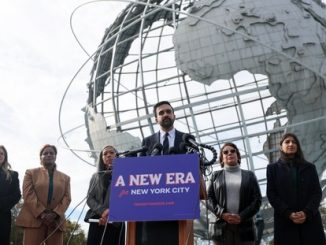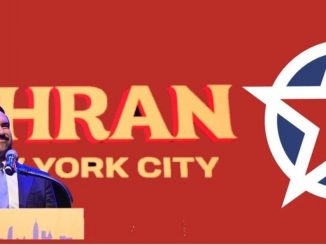
| Published July 17, 2025
🧭 What “Red Diaper Baby” Actually Means
A “red diaper baby” refers to children of parents who were active members or sympathizers of Communist parties in the U.S. or Canada—often literal hardcore communists. Mamdani, by contrast, was born in Kampala in 1991 to parents not linked to any Communist Party.
🧳 His Real Family Background
-
Mother: Mira Nair — an Indian-American filmmaker, originally from Odisha, known for critically acclaimed films like Salaam Bombay and Monsoon Wedding
-
Father: Mahmood Mamdani — a renowned postcolonial scholar at Columbia University, with no public affiliation to Communist party membership
🌍 His Upbringing & Identity
-
Born: October 18, 1991, in Kampala, Uganda.
-
Grew up: Early years in Uganda and Cape Town, then settled in NYC at age 7.
-
Education: Attended Bronx High School of Science and earned a BA in Africana Studies from Bowdoin College.
-
Profession: Served as a housing counselor, then became a NY State Assemblyman, and is now the Democratic nominee for NYC Mayor in 2025
🧭 The Real Mamdani
-
A multicultural global citizen, who blends African, Indian, and American experiences.
-
A progressive, democratic socialist, not a communist; his policies focus on rent control, free transit, public childcare, and grocery co‑ops
-
A grassroots organizer, gaining traction by tackling affordability issues and harnessing widespread volunteer support .
 Five Key Implications of Zohran Mamdani’s Rise
Five Key Implications of Zohran Mamdani’s Rise
Zohran Mamdani’s candidacy signals more than just the generational shift many expected—it marks a potential redefinition of urban governance through a firmly ideological lens. His upbringing, shaped by anti-imperialist scholarship and global leftist thought, raises questions about how those influences may manifest in policy if he becomes New York City’s next mayor.
-
A Shift Toward Democratic Socialism in City Hall
Mamdani’s affiliation with the Democratic Socialists of America (DSA) suggests a mayoral agenda that prioritizes state-led solutions over market-driven ones—potentially challenging NYC’s relationship with private enterprise. -
Redistribution of Public Resources
From fare-free transit to publicly funded co-ops, Mamdani’s policies propose a radical redistribution of city funds, which could redefine budgeting priorities and trigger conflict with both Wall Street and City Council moderates. -
Increased Tension With NYPD and Pro-Israel Groups
His support for the BDS movement and prior criticism of law enforcement may intensify friction with police unions and Jewish organizations, affecting city unity and public safety discourse. -
Global Ideology, Local Consequences
With roots in post-colonial and anti-imperialist thought, Mamdani brings a worldview shaped outside traditional American politics. How this ideology translates into day-to-day governance remains a pressing question. -
A Challenge to the Democratic Establishment
His rise—bolstered by grassroots activism rather than party machinery—signals a brewing revolt within the Democratic Party itself, threatening long-standing power structures in the city.
 Overall Takeaway: A Warning Wrapped in a Campaign
Overall Takeaway: A Warning Wrapped in a Campaign
Zohran Mamdani is not just another progressive candidate riding the wave of urban discontent—he is the product of a deeply ideological lineage rooted in anti-capitalist, anti-Western thought. From his father’s postcolonial academic lens to his own embrace of socialism and radical activism, Mamdani represents a shift far beyond traditional liberalism. His policies—masked as solutions for the working class—signal a broader agenda: one that challenges the foundations of American governance, free enterprise, and national identity.
As voters consider Mamdani’s promises of “equity” and “justice,” they must also weigh the ideological undercurrents shaping his vision. Is New York ready to become a testing ground for socialist policy imported from the global academic fringe? Or will the city recognize that beneath the populist slogans lies a calculated effort to steer America’s largest city toward a far-left experiment with potentially irreversible consequences?





Be the first to comment